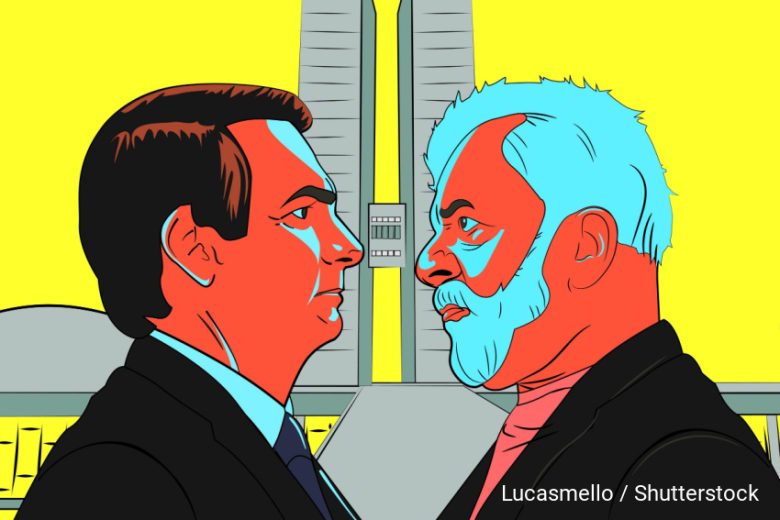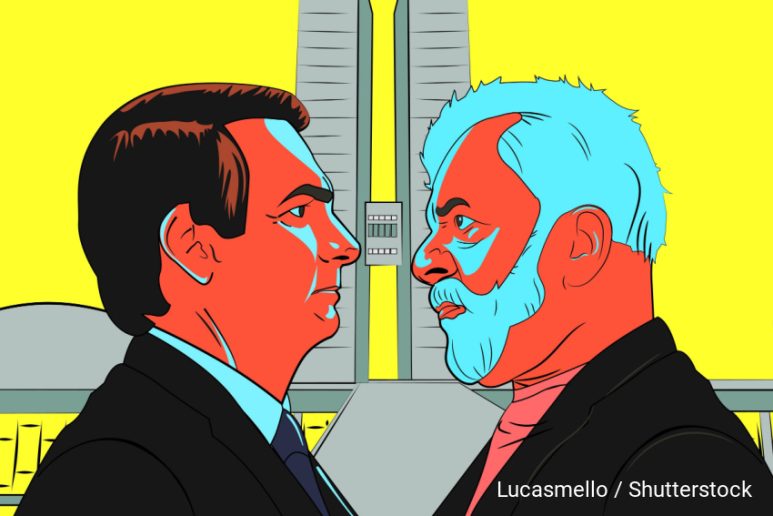By Raphael Tsavkko Garcia
According to the NGO Reporters Without Borders (RSF), during Bolsonaro’s Presidency a hostile media environment had been created with disinformation and attacks on press freedom on the rise. Although Lula (Luiz Inácio Lula da Silva) has been described as a controversial figure by international media, and during his first two presidencies (2003-2010) some of his most fanatical supporters threatened journalists and hindered the work of the press, his recent win and third presidency have been welcomed globally.
Despite setbacks and some displays of authoritarianism by supporters and Lula’s Workers’ Party (PT) , the fact remains that the end of the Bolsonaro government was celebrated by journalists and most of the press.

For journalist and writer Cora Rónai, “the biggest difference of all is that we have a human being in the presidency, something that could not be said of Bolsonaro”.
“We will have a more responsible administration in relation to public information. During the entire Bolsonaro government, it was pointless to refer questions to any office. The most shocking example of official information incompetence happened at the height of the pandemic, when the basic numbers on cases and deaths from Covid had to be ascertained by a consortium of press outlets, because the government did not have, or did not want to provide, the data,” Rónai tells MDI.
Upon assuming the presidency, Jair Bolsonaro made it clear what the four years of his government would be like, fraught with threats of violence, aggressive treatment, as well as being rude and sexist. While still campaigning in 2018, before being elected, Bolsonaro made it clear that he had no respect for journalists and the press, with verbal and physical attacks, doxing and a series of threats.
Female journalists were Bolsonaro’s favourite target, and he also maintained a robust network of websites, Telegram and WhatsApp groups and social media bots to spread fake news and hinder the work of the press.
In June 2022, the bodies of journalist Dom Phillips and indigenist Bruno Pereira were found in the Javari Valley, deep in the Amazon Forest. They were allegedly murdered by illegal loggers and miners who may have felt empowered by Bolsonaro– both by his speeches, and his policies against the interest of indigenous populations in the region. Philips and Pereira were known critics of Bolsonaro.
“Bolsonaro’s inauguration, when some journalists were barred from covering the ceremony and others relegated to a space with no work structure, already set the tone for how the press would be treated in his government. The Bolsonaro family blocked dozens of journalists on social media and perpetrated attacks on another hundred of them. Their base focused especially on women,” says Cecília Oliveira, a Black journalist and specialist in public security and drug policy.
Journalist and doctor in semiotics from the Pontifical Catholic University of São Paulo, Lygia Maria, agrees.
“Bolsonaro practically cut off the relationship with the mainstream press: offending journalists (especially women), refusing to give interviews, etc. The Secretariat of Communication of the Presidency was practically dismantled,” Maria tells MDI.
She notes that,
“with Lula, the work of the press returns to a state of institutional normality as Lula understands the republican and democratic meaning of the press as a mediator between the government’s actions and the population”.
However, Maria says that Lula
“does not deal very well with criticism, as he has demonstrated by statements in the past against the Rede Globo, for example. But, in general, relations tend to be civilised, which is already a great advance in relation to the previous president.”
One criticism levelled at both Lula and Bolsonaro was the use of fake news to promote their governments; the funding of websites and blogs and the use of activists to spread disinformation. If on one hand the PT was a pioneer, Bolsonaro professionalised this use.
The issue “is a central point for the democracies of the world,” says Oliveira, noting that “we have seen problems regarding fake news in the US, Malaysia, Philippines etc and it involves technology giants with great influence over media and information dissemination”.
Local solutions must be found, but with a global perspective, particularly considering that former president Bolsonaro worked hard to form a global far-right alliance and fake news was fundamental to such governments.
“Fighting fake news, even if it is not always possible, is extremely necessary: to all fake news, ’friends’ or ‘enemies’. But I am concerned about the way this is being handled in the government, which is assigning itself a role of Ministry of Truth. Fighting fake news is not a government task, it is a state task,” Rónai tells MDI.
Maria agrees, adding that this “is the most worrying point surrounding the new government”. She believes that the Supreme Court and the Superior Electoral Court have overstepped their prerogatives and ended up censoring, banning social media accounts and persecuting activists because of conversations in WhatsApp groups.
“The discourse was that the inhospitable context created by an atypical president justified such actions. Well, they do not. Freedom of expression is non-negotiable,” states Maria.
However, “for what we have seen in past Workers’ Party governments,” says Maria, “we can expect the return of state funding for blogs and websites aligned to the Workers’ Party. Or even funding for influencers on social networks.”
If this were to happen, ponders Oliveira,
“it would be an investment in an outdated type of communication, and therefore a bad investment. Communication has changed, so has the way of communicating. It is undeniable that communication is central to any government and that using it properly can leverage actions and votes. The right has mastered this very well. It is necessary, before deciding what to invest in, to understand the communication ecosystem, which, so far, does not seem to have been done.”
Despite all this, there is the expectation that, even with all the tensions, important minority agendas will move forward. With Bolsonaro, racist, homophobic and sexist speeches were the rule, with Lula, the trend is for change.
“Representativeness needs to be something beyond images and delve into practices that change the status of inequality and poverty and focus on the protection of less favoured populations,” says Oliveira. She also notes that “Brazilian society has changed, and this is reflected both in the choice of ministers and secretaries, but also within newsrooms. The impact of this within newsrooms can be dubious: top positions in newsrooms continue to be mostly concentrated in the hands of wealthy white men”.
During the Bolsonaro government, and perhaps even because of it, newsrooms have gradually become more diverse, albeit at insufficient levels.
“There can either be a willingness – and understanding – on the part of reporters who may have come from families where this diversity is reflected, and therefore shapes them as a person, or a resistance on the part of newsroom decision-makers, who are often antagonistic to such perceptions, whether out of classism, racism or mere ignorance,” Oliveira tells MDI.
Photo Credits: Lucasmello / Shutterstock

